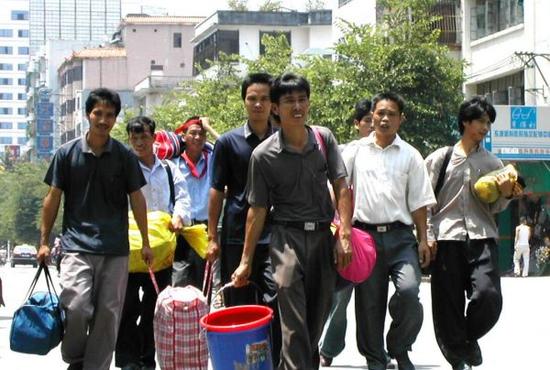Full coverage: 2017 NPC & CPPCC Sessions
By Tom McGregor, CCTV.com Panview Opinion Page commentator and editor
Much of China’s rural region remains mired under impoverished conditions. In the past few decades, hundreds of millions of rural residents have flocked to cities in search of better job opportunities.

The MegaCities - Beijing, Chongqing, Shanghai and Shenzhen - have endured serious problems of over-crowding and pollution on account of the large influx of migrants.
Many farm villages have turned into ghost towns, which could lead to serious food shortages later on if young migrants refuse to go back home when their parents die off.
Accordingly, the National People’s Congress (NPC) and the Chinese People’s Political Consultative Conference (CPPCC) will hold the annual “two sessions” this month to introduce the government’s new agenda.
Officials intend to enact rural reforms that would encourage migrants to return to their farms.
The General Office of the CPC Central Committee has already announced ambitious goals for improving rural townships.
Modernizing traditional agriculture
Implementing comprehensive rural reforms would require much efforts and persistence.
The initiative calls for townships to enforce significant upgrades on education, ecological protections, social services, food safety, public safety, medical care, infrastructure, tourism and national insurance policies.
Achieving targets could prove daunting. CCTV.com Panview visited rural Fufeng County in western China’s Shaanxi Province and made prior annual trips since 2012 during the Spring Festival season.
CCTV.com had witnessed first-hand the remarkable progress of the County government and township levels, but local villages and farmers have not experienced similar rapid progress in their developmental paths.
Villages deserve greater attention as farmers should learn new and advanced agricultural methods and granted easier access to modernized equipment and machinery to increase crop production levels.
Onboard the e-Commerce bandwagon
Farmers should have more options to sell produce to the marketplace. Local governments can also play a pivotal role by partnering up with private firms, known as Public-Private-Partnerships (PPP), to construct hi-tech warehouses for storage and distribution of crops.
Meanwhile, the world’s largest e-Commerce retailer, Alibaba Group, pledged to invest over $US10bn. on its ‘Rural Taobao’ strategy by 2020.
Alibaba will make it more convenient for villagers to conduct online purchases, as well as for farmers to sell their produce on the internet.
According to Seeking Alpha, Beijing has launched supportive policy measures that include launching more extensive networks of mobile WiFi and internet coverage for rural communities by pledging to spend $US22bn. on such efforts.
The ‘Rural Tabao’ plan will create jobs and funding to set up internet-connected distribution centers in remote areas with over 100,000 village-level drop-offs.
By 2020, Beijing vows to offer free WiFi to more than 50,000 villages and Alibaba is expected to open 1,000 county-level distribution centers, while providing training programs to teach farmers how to market and sell produce online.
Tackling education challenges
More extensive internet coverage for rural communities will provide other benefits as well. The National Bureau Statistics of China (NBSC) disclosed that over 400,000 elementary and secondary schools were either shut down or faced foreclosure in the past two decades.
Rural schools face isolation, declining enrollment and limited resources. Highly-qualified teachers are avoiding the countryside due to low salaries, heavy workloads and loneliness.
Developing certified online education platforms can be the right solution to expand rural students’ knowledge and horizons, while giving teachers better training, curriculum and public outreach.
Both students and teachers can participate in real-time online classroom interactions while meeting the nation’s high academic curriculum standards.
Keep farmers’ hopes alive
As the domestic economy keeps resilient and enjoys higher than global average GDP (gross domestic product) annual growth rates, millions of migrants have plenty of reasons to stay in big cities.
Yet, a strong national economy needs a bountiful agriculture sector and young migrants should return to their home villages. Beijing is taking the right steps to move forward on rural reforms, but more needs to be done to make China’s farms great again.

Tom McGregor, CCTV.com Panview Opinion Page commentator and editor
(The opinions expressed here do not necessarily reflect the opinions of Panview or CCTV.com)

Panview offers a new window of understanding the world as well as China through the views, opinions, and analysis of experts. We also welcome outside submissions, so feel free to send in your own editorials to "globalopinion@vip.cntv.cn" for consideration.















